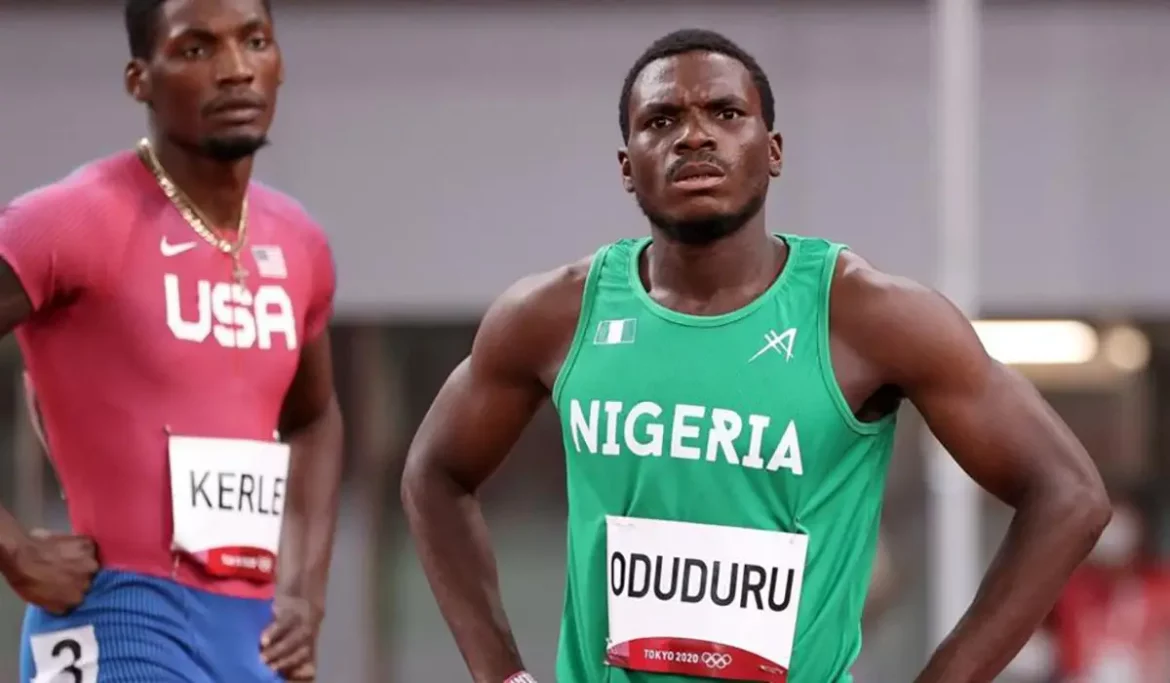Nigerian sprinter Divine Oduduru has been given a six-year ban for committing two doping violations. The Athletics Integrity Unit announced the decision on Thursday, saying there was “overwhelming evidence” against the former world junior silver medallist.
The violations were possession of prohibited substances and attempted use of a prohibited substance or method. Oduduru’s case was linked to that of team-mate Blessing Okagbare, who was banned for 11 years for doping in 2022.
“We are very pleased with the outcome of this matter, given its particularly grievous nature, exposing the sinister collusion between athletes and other persons in deliberate plans to corrupt athletics at the highest level,” said Brett Clothier, head of the AIU.
Oduduru had been provisionally suspended on 9 February.
Okagbare’s case came to light after US prosecutors charged therapist Eric Lira with supplying performance-enhancing drugs to athletes at the Tokyo Olympics.
Lira is facing 10 years in prison after pleading guilty to the charges.
The 34-year-old Okagbare was expelled from the Tokyo Olympics just before the women’s 100m semi-finals after it emerged she had tested positive for human growth hormone in an out-of-competition test in Slovakia before the delayed 2020 Games.
Okagbare’s phone was seized by US Customs and Border Protection when she returned to the United States and a Federal Bureau of Investigation complaint set out “highly incriminating text and voice messages” with Lira.
She was banned by the AIU for the use of multiple prohibited substances and for not co-operating with the investigation.
There was significant evidence against Oduduru, including Whatsapp messages between Okagbare and Lira that revealed Okagbare soliciting prohibited substances on Oduduru’s behalf.
The 27-year-old Oduduru maintained his innocence throughout the investigation.
Oduduru, who has a 100m best time of 9.86 seconds was disqualified in the 100m heats in Tokyo but reached the 200m semi-finals. He won 200m silver at the 2014 World Junior Athletics Championships.
“The AIU is fully committed to unearthing cheats and the extent of their networks. In our quest to protect the integrity of athletics, we often work closely with other investigative organisations,” said Clothier.
“We are grateful for the assistance from the United States Anti-Doping Agency (USADA) and United States Department of Justice whose legal reach provided vital evidence which helped in this matter as well as in our case against Blessing Okagbare last year.”
The AIU added: “There was photographic evidence of multiple prohibited substances discovered in Oduduru’s Florida apartment.”
Among evidence found were two boxes of Somatropin,”Xerendip” and “Humatrope,” which were identified as human growth hormone; a plastic bag labelled “IGF LR3” – an abbreviation for synthetic Insulin Growth Factor – containing three vials, and two boxes of erythropoietin (EPO).

